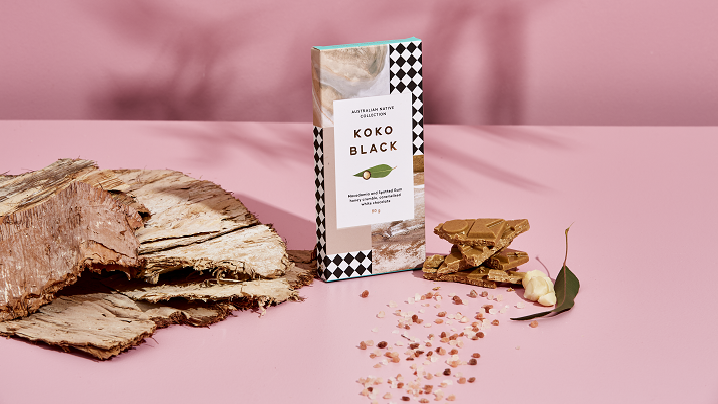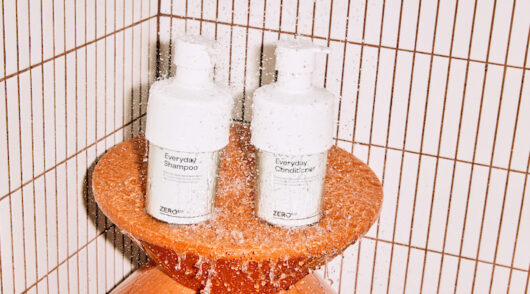Koko Black emerged from the Covid-19 pandemic in a strong financial position, and is investing in its future growth. The handmade chocolate company has increased its workforce by 31 per cent over the last four years. It recently moved to a 24-hour production cycle, and has just refurbished its warehouse, which will double its capacity. It is also looking to expand on its 15 stores, with a new Westfield Sydney store opening this month. Koko Black owner Simon Crowe, who is also the co-
he co-founder and managing director of Grill’d, bought the business out of administration in 2016 after identifying its potential as a great brand, with quality, artisanal products.
He told Inside Retail that Covid-19 was a game of survival, but the brand now has a clear trajectory for growth. He said it wasn’t profitable until last year – when it broke even – and that this year, its profits became more meaningful.
He added the drivers behind its growth include significant investment in its people and manufacturing capabilities, a change to the structure of the business, and a change in its positioning: from ultra luxury, to substantively premium.
Over the years, Koko Black has also significantly increased its product range and SKUs, introduced new branding and packaging, and new back-end systems. It also has redesigned the store concept, model and design, inclusive of its look and feel.
Though its headline products are still the handmade pralines and hot chocolates, the brand has started collaborating with other Australian brands, including fine dining restaurant Attica, Starward whiskey and Four Pillars gin.
“There aren’t many instances in Australia where you need to bring a brand further into an approachable space. It was very well regarded, but only by a few, and it was quite intimidating,” he said.
“Therefore, we’ve tried to make it premium and lust-worthy [but] with a focus that has broadened to everyday consumption.
“Customers can enjoy Koko Black on a daily basis and, rather than it being only available as an exclusive or special gift, [it] now has gifting for all occasions.”
Big guys knocking
According to Crowe, Koko Black’s channels are carefully managed.
The brand set up its e-commerce business the week before Covid-19 hit. Within 12 months the online business grew from nothing, to well-in-excess of $6 million, with customers frequently returning to the website to buy products largely for gifting purposes. This is known because the billing and delivery addresses are often different.
Koko Black also has a corporate, wholesale and fledgling international business. Crowe explained that the brand currently supplies a number of premium independent supermarkets, and that the big guys – like Coles and Woolworths – are seemingly fighting each other to stock its products.
“We may one day consider a small range for supermarkets, but it’s not our intent at the moment. We are therefore saying no to [business] opportunities [because] we’re putting brand ahead of commerce, because we are playing a long game,” he said.
Crowe said that he is pleased that iconic brands – like Crown Towers, Qantas and Chanel – have sought Koko Black as a corporate partner.
He added that the brand is playing with the prospect of direct sales to China.
“Prior to the [borders] shutting at the end of January 2020, we saw an immediate loss of 15 per cent of our revenue in our retail stores. It was directly attributable to Chinese and [South] Korean tourists, so [we’ve] done a bit of exploratory work with Alibaba over there,” he said.
“More recently, we’ve had players in Singapore [and] we know that South Korea is a huge opportunity.
South Korea and China remain the large-scale international opportunities, and a key reason that Crowe bought the business.
“Our desire for buying the business was to make an Australian brand iconic in Australia, but also overseas,” he said.
“Long term, our objective is to crack that [overseas] market.”
Investing ahead of growth
Crowe contends that some Koko Black’s sites are generating revenues that are more than 50 per cent above expectations.
He said the business has built awareness in Sydney, with a CBD store in David Jones, and is now expanding, with the upcoming Westfield site, a store in the Sydney Airport set to open before Christmas, and two more potential sites in the CBD.
“We thought the business was at risk of falling over and failing simply because we put all investment into the business ahead of growth,” he said.
“Thanks to the CEO at the time, Nicolas Georges, we’ve been able to manage [and] survive.
“Post Covid-19, our confidence has skyrocketed.”
Better efficiencies to offset cost inputs
The change in Koko Black’s 24-hour production cycle has been a challenge for the company’s management, from a coverage and headcount perspective.
But without it, Crowe said that demand would otherwise exceed supply. This – in addition to the investment in its warehouse, to hold the stock it was producing – has been necessary, particularly in the lead up to Christmas.
The 24-hour production should also provide better efficiencies, which will help to offset higher chocolate and input prices.
“We’ve decided that [price increases] are not appropriate at the moment. We want people to experience our brand, and do so where it’s affordable, yet premium,” he said.
He expects that Christmas – which is Koko Black’s busiest period – will be 50 per cent higher than last year, which was 50 per cent higher than the year before.
“We believe that if things do get tough, then affordable luxuries are things that people seek out. As a result, we believe we’re in a really strong position for a difficult and challenging economic climate,” he said.
“We’re continuing to bet on future growth largely because of the consumer love that exists at the moment.”







